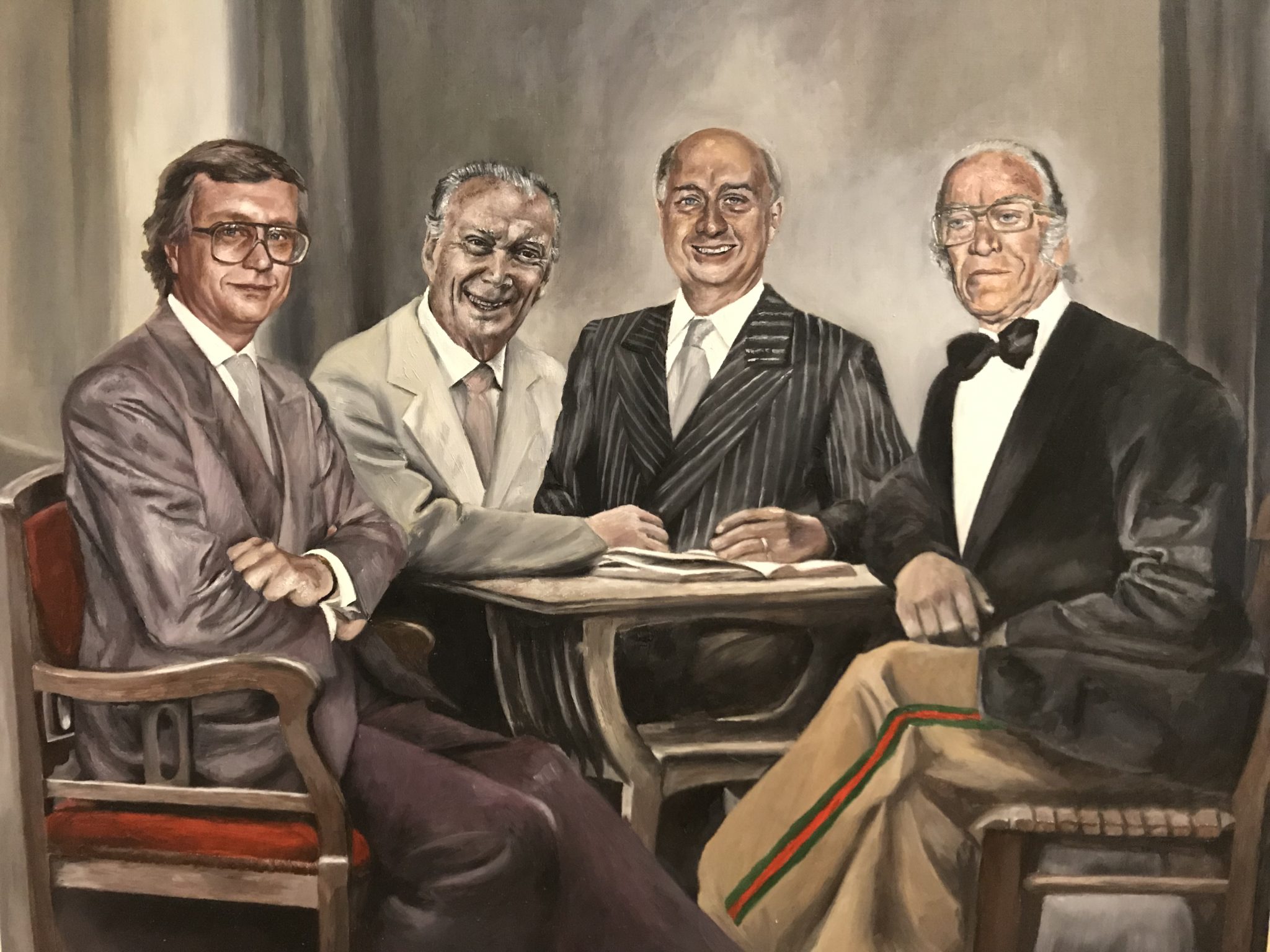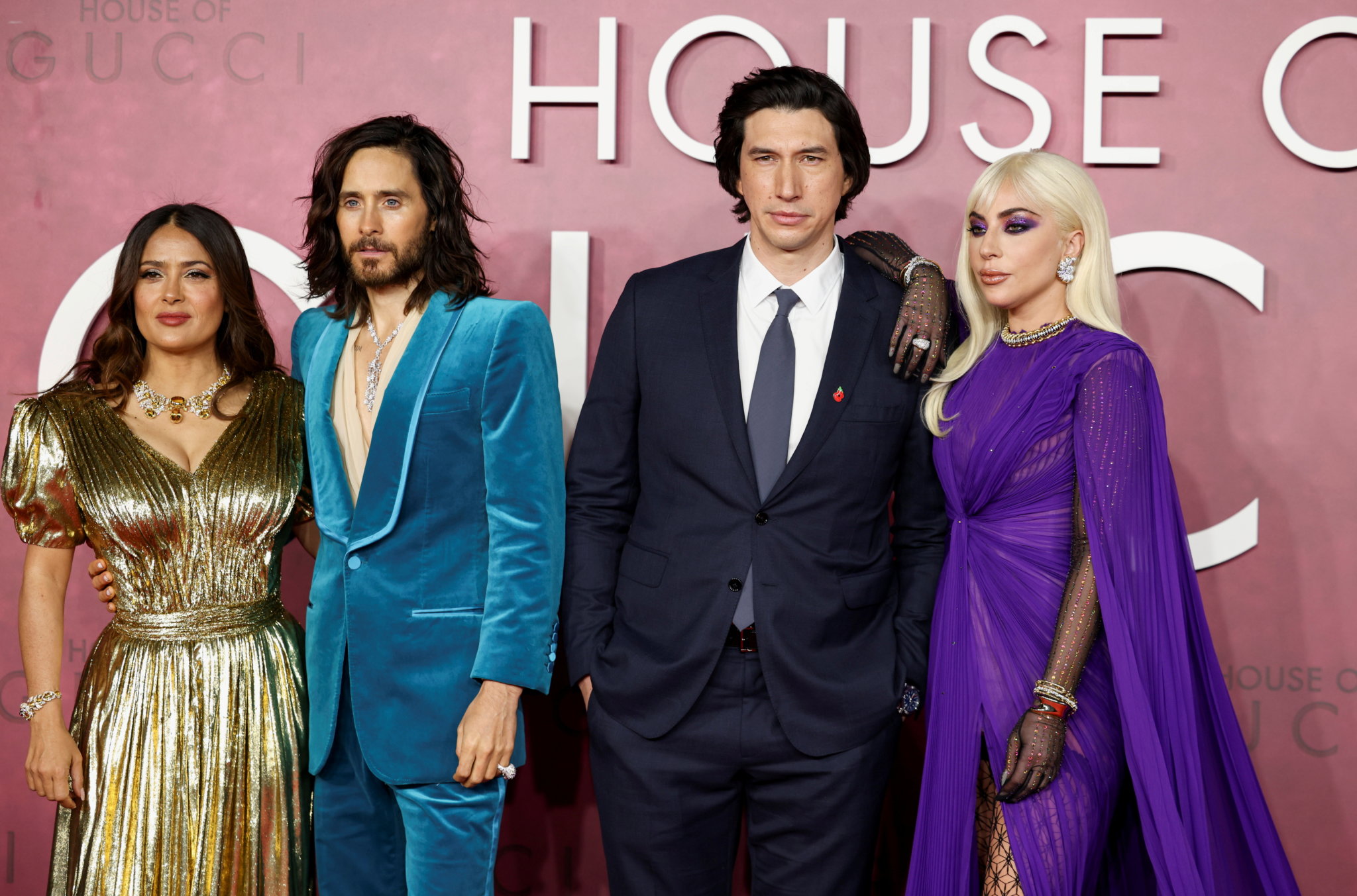Let’s dive straight into it, folks. If you’ve ever wondered whether the Gucci family still owns Gucci, you’re not alone. The Gucci name is synonymous with luxury, style, and opulence, but the story behind this iconic brand is more complex than you might think. Does the Gucci family still own Gucci? The answer might surprise you, and we’re about to break it down in a way that’s both informative and easy to digest.
This isn’t just another brand story; it’s a tale of family drama, business decisions, and the evolution of one of the most recognizable names in fashion. We’ll explore the origins of Gucci, the role of the Gucci family, and what happened to their stake in the company over the years. So, buckle up because we’re diving deep into the world of high-end fashion and corporate ownership.
But before we get into the nitty-gritty, let’s set the stage. Gucci isn’t just a brand; it’s a cultural phenomenon. From red carpet events to street style, Gucci’s influence is everywhere. Yet, the question of family ownership remains a mystery to many. By the end of this article, you’ll have a clearer understanding of the Gucci family’s role in the brand’s past, present, and future.
- Peeta Mellark Pictures A Deep Dive Into The Iconic Imagery Of A Beloved Character
- Whatrsquos The Deal With Smothers Theater A Deep Dive Into The World Of Comedy And Drama
Understanding the Gucci Legacy
A Brief History of Gucci
Gucci was founded in Florence, Italy, back in 1921 by Guccio Gucci. The brand quickly gained a reputation for its leather goods and distinctive designs. Over the decades, Gucci became a symbol of luxury and sophistication, attracting clientele from all over the world. But the journey wasn’t without its challenges.
Here’s a quick rundown of Gucci’s early years:
- 1921: Guccio Gucci opens his first store in Florence.
- 1938: The brand expands to Rome, further solidifying its presence in Italy.
- 1953: Aldo Gucci, one of Guccio’s sons, takes over the business and expands internationally.
As the brand grew, so did the family’s influence. However, the family’s control over Gucci wasn’t destined to last forever.
- Trump Lifts Ban On Segregation A Deep Dive Into The Controversy
- Hair Twist For Women The Ultimate Guide To Stylish And Versatile Looks
Does the Gucci Family Still Own Gucci? The Short Answer
Breaking It Down
No, the Gucci family does not own Gucci anymore. In fact, the family sold their shares in the company in the 1990s. The decision to sell was driven by a mix of financial pressures, internal family disputes, and the need to modernize the brand.
So, who owns Gucci now? The brand is currently part of Kering, a French multinational luxury group. Kering acquired Gucci in 1999 and has since played a pivotal role in shaping its direction.
The Gucci Family’s Role in the Brand
The Rise and Fall of Family Ownership
The Gucci family was instrumental in building the brand’s reputation. From Guccio Gucci’s innovative designs to Aldo Gucci’s business acumen, the family laid the foundation for Gucci’s success. However, the 1980s and 1990s were marked by turmoil within the family.
Here are some key points to consider:
- Family disputes led to legal battles and strained relationships.
- Financial mismanagement threatened the brand’s future.
- In 1993, the family sold their remaining shares to Investcorp, a Bahrain-based investment firm.
While the Gucci family no longer owns the company, their legacy lives on through the brand’s iconic designs and timeless appeal.
Why Did the Gucci Family Sell Their Stake?
Unpacking the Decision
The decision to sell was influenced by several factors:
- Financial Pressures: The family faced mounting debts and struggled to keep up with the brand’s operational costs.
- Internal Conflicts: Family members had differing visions for the brand’s future, leading to disagreements and a lack of unified leadership.
- Market Demands: The fashion industry was evolving rapidly, and the family realized they needed external expertise to keep Gucci competitive.
Ultimately, selling their stake allowed the brand to attract new investors and modernize its operations. It was a tough decision, but one that proved necessary for Gucci’s long-term success.
What Happened After the Sale?
The Transition to Corporate Ownership
After the Gucci family sold their stake, the brand underwent significant changes:
- Kering (formerly PPR) acquired Gucci in 1999, bringing stability and strategic direction to the company.
- Under Kering’s leadership, Gucci embraced new marketing strategies and expanded its product offerings.
- The brand continued to innovate, introducing bold designs and collaborating with renowned designers like Alessandro Michele.
Today, Gucci is one of the most successful luxury brands in the world, with a global presence and a loyal customer base.
The Impact on the Gucci Brand
How Corporate Ownership Changed Gucci
Corporate ownership brought both challenges and opportunities for Gucci:
- Challenges: The transition required significant changes in management and operations, which took time to implement.
- Opportunities: Access to new resources, technology, and talent allowed Gucci to grow exponentially.
Under Kering’s leadership, Gucci has thrived, maintaining its reputation for quality and innovation while expanding into new markets.
Does Family Ownership Matter in Luxury Brands?
The Role of Heritage in Modern Fashion
In the world of luxury fashion, family heritage plays a crucial role. Brands like Chanel, Hermès, and Louis Vuitton still have strong ties to their founding families. However, Gucci’s story shows that family ownership isn’t always a guarantee of success.
What matters most is the brand’s ability to adapt to changing market conditions and consumer preferences. Gucci’s transition to corporate ownership demonstrates that success can be achieved through strategic partnerships and innovative leadership.
Key Takeaways: Does the Gucci Family Still Own Gucci?
Summarizing the Facts
To recap:
- The Gucci family no longer owns Gucci.
- The brand is now part of Kering, a French luxury group.
- Corporate ownership has allowed Gucci to modernize and expand globally.
While the Gucci family’s influence may have diminished, their legacy continues to shape the brand’s identity. Gucci remains a leader in the luxury fashion industry, thanks to its commitment to quality, innovation, and style.
Final Thoughts and Call to Action
So, there you have it. The Gucci family doesn’t own Gucci anymore, but their contributions to the brand’s success are undeniable. As you explore the world of luxury fashion, remember that every brand has a story, and Gucci’s story is one of resilience and transformation.
Now it’s your turn! Did you learn something new today? Let us know in the comments below. And if you enjoyed this article, don’t forget to share it with your friends and family. Together, let’s keep the conversation going about the fascinating world of fashion and business.
- Sky Diamonds Las Vegas Your Ultimate Guide To The Shining Experience
- Does Fleetwood Mac Still Perform A Deep Dive Into Their Current Status


